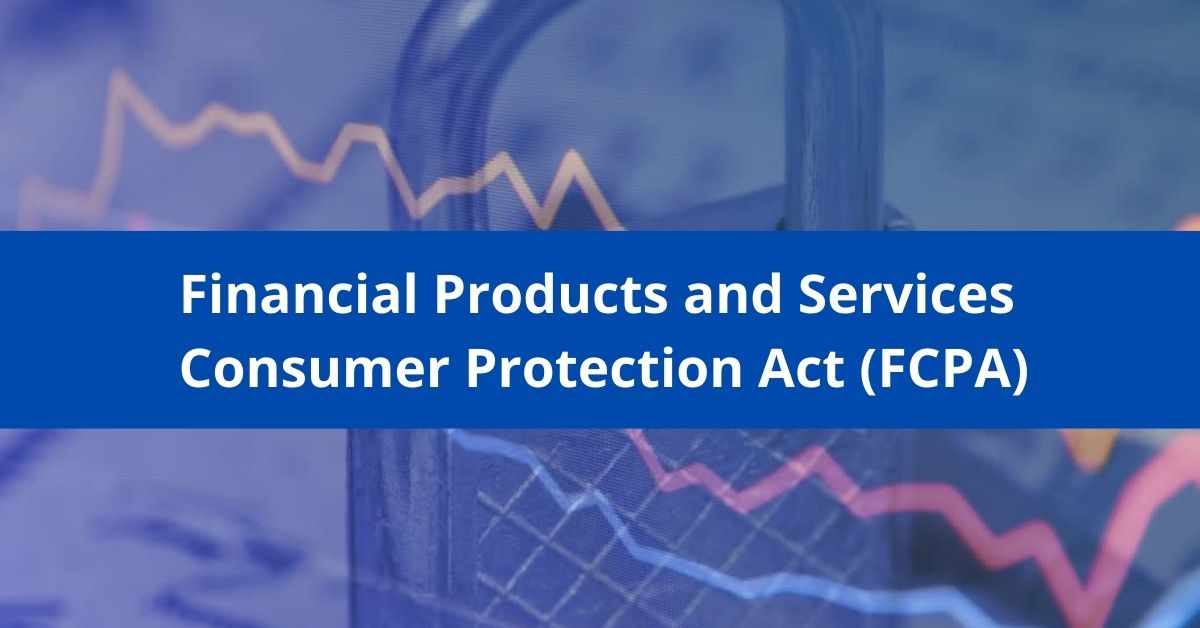Financial Products and Services Consumer Protection Act (FCPA) / R.A. 11765 Strengthens Consumers’ Protection
Online scams and financial fraud are not new to us anymore. We have heard many times the stories of ordinary Filipinos losing their hard-earned money due to these schemes.
Thus, the Financial Products and Services Consumer Protection Act is just timely and relevant.
Under Republic Act (R.A.) 11765 or the Financial Products and Services Consumer Protection Act, investing public will now have more protection against online fraud.
The new law mandates the state to implement measures to protect consumers’ rights, such as:
- Right to equitable and fair treatment;
- Right to disclosure and transparency of financial products and services;
- Right to protection of consumer assets against fraud and misuse;
- Right to data privacy and protection;
- Right to timely handling and redress of complaints
Moreover, the recent directive strengthens the powers of financial regulators to formulate their own rules and standards for financial institutions and impose sanctions for violators.
- 11765 also enumerates the duties and responsibilities expected of financial service providers.
Expanded Roles of Financial Regulators
The FCPA directs financial regulators – the Bangko Sentral ng Pilipinas (BSP), Securities and Exchange Commission (SEC), Insurance Commission (I.C.), and the Cooperative Development Authority (CDA) to make their own rules and regulations to implement the law.
Among others, these public institutions are authorized to evaluate the reasonableness of fees and other charges imposed by financial companies on their products and services.
Likewise, they may regulate the collection of excessive or unreasonable fees and monitor the institution’s compliance with the law. Financial institutions should also provide a consumer complaint-handling process to address clients’ grievances.
Furthermore, the BSP and SEC were empowered to mediate and decide disputes involving money not exceeding P10,000,000.00. These governing bodies may also file an independent civil action for violating this law on the consumer’s behalf.
Duties of Financial Institutions
One of the duties of financial service providers is to continuously evaluate the financial products and services they offer to the public. They should see that the products and services are in accordance with the markets and clients’ needs, understanding, and capacity.
For loan products, they should put a mechanism that will monitor credit limits to prevent over-indebtedness.
Likewise, banks and other financial institutions should adopt a cooling-off policy, wherein clients have the opportunity to reconsider long-term business investment decisions.
The management should have internal policies and procedures in setting up pricing and fees and transparency and disclosure policies.
Employees of financial companies should fully disclose the products and services to the clients before the latter avail of any of those products. Advertising materials should indicate their contact information and the relevant financial regulator.
Rights of the Investing Public
Financial companies may have the right to choose their clients. But consumers should not be discriminated against based on race, age, financial capacity, ethnicity, origin, gender, disability, health condition, sexual orientation, and religious or political affiliation.
For products that require a client to avail of another product, the clients can select the provider of such product. Also, during the cooling-off period, a consumer may terminate the contract without charges.
For loans and other credit accommodations, prepayment is allowed. However, the consumer will shoulder the fees and costs concerning the prepayment, provided this process is disclosed.
Consistent with the Data Privacy Act, R.A. No. 11765 protects the clients’ data, and their privacy is respected.
As consumers and patrons of financial products, the passage of R.A. 11765 is a piece of welcome news to all of us. The new law enhances the existing standards on consumer protection in the finance industry.
With so many online frauds involving ATM and credit cards, our data and online security are improved. Thus, preventing us from becoming victims of online scams.
Putting up a price control mechanism and transparency policy will prevent us from being targets of products with overpriced interest rates.
We hope to see a more stable financial market with a more responsive and relevant consumer protection law in the coming years.
Recent Posts
- New Features and Functionalities of the Online Registration and Update System (ORUS)
- A Comprehensive Guide to Taxation for Freelancers in the Philippines
- New Tax Laws in 2024: What Changes Filipino Taxpayers Should Prepare For
- How to Avoid Common Tax Mistakes in 2024
- Tax Deductions and Benefits Often Overlooked by Filipino Taxpayers





